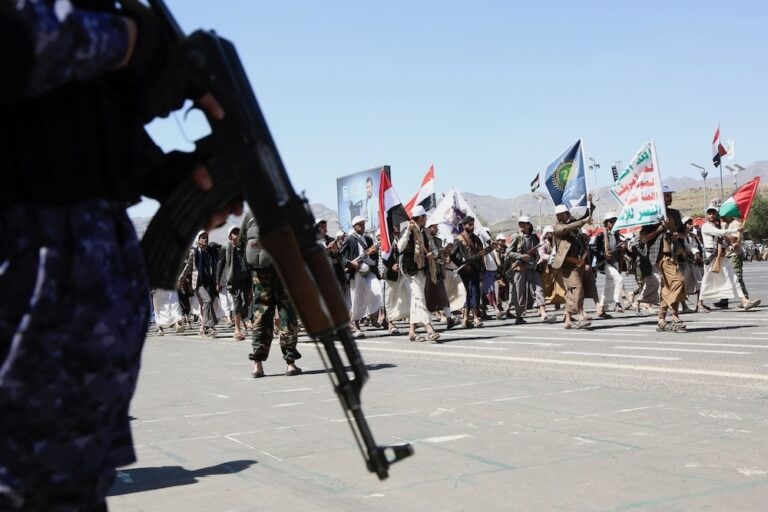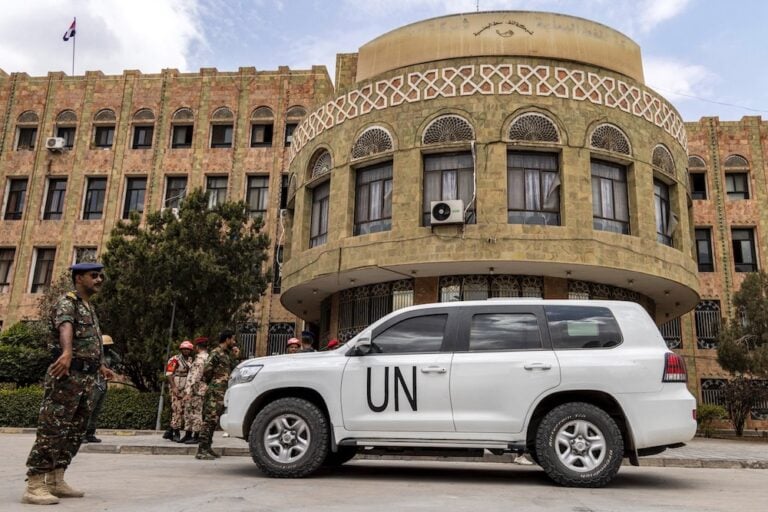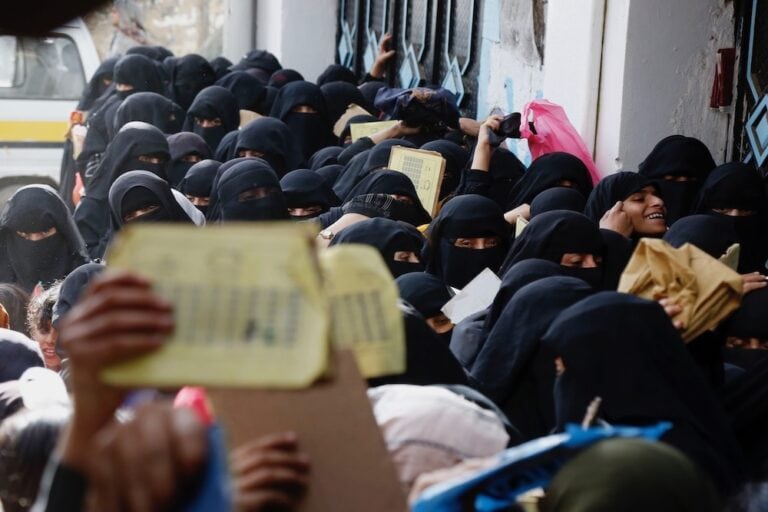(CPJ/IFEX) – In a 24 July 2002 letter to President Ali Abdullah Saleh, CPJ expressed its deep concern about recent incidents of official legal harassment of the press in Yemen. On 9 July, three journalists – Faisal Mukarram, a reporter for the London-based “Al-Hayat” daily, Ahmed al-Hajj, a reporter with The Associated Press, and Khaled […]
(CPJ/IFEX) – In a 24 July 2002 letter to President Ali Abdullah Saleh, CPJ expressed its deep concern about recent incidents of official legal harassment of the press in Yemen.
On 9 July, three journalists – Faisal Mukarram, a reporter for the London-based “Al-Hayat” daily, Ahmed al-Hajj, a reporter with The Associated Press, and Khaled al-Mahdi, a correspondent for Deutsche Presse Agentur – were summoned by a state prosecutor and accused of violating article 103 of the press law, which bans journalists from publishing “any secret document or information that might jeopardize the supreme interests of the country or expose any of its security or defense secrets.”
The accusation stems from articles that the three wrote about a 4 July incident in which Deputy Army Chief of Staff Ali Salah was injured when his helicopter apparently came under fire from local tribes in the al-Jouf region in north Yemen.
According to Khalid al-Ansi, a lawyer for the three journalists, the prosecutor has alleged that the published articles “revealed military and security secrets.” Although the story was covered in several Yemeni newspapers and other foreign media, only Mukarram, al-Hajj, and al-Mahdi have been questioned by the prosecutor. If convicted, they each face up to a year in prison.
In another unrelated but equally disconcerting development, state prosecutors continue to pursue three criminal cases against “Al-Ayyam” editor-in-chief Hisham Bashraheel and two of the newspaper’s journalists, Hassan Ben Hassainoun and Nabil al-Amoudi. The cases, which will resume in court on 12 August, stem from three 1999 and 2001 articles (one being an interview conducted with Abu Hamza al-Masri, a London-based Muslim cleric, the other dealing with the destruction of a synagogue in Aden and the third expressing criticism of the head of the Information Ministry in the Abayan province). If convicted the journalists each face jail sentences.
CPJ welcomes President Saleh’s presidential decree, issued last week, halting all legal proceedings initiated against the press. However, this decree requires that journalists who intend to benefit from the amnesty sign a pledge admitting their guilt and promising not to commit future “offenses.” CPJ believes that criminal prosecutions against the press will only cease when the Yemeni government sends a strong signal that it will not tolerate such legal harassment and launches reforms of the laws used to prosecute journalists.
Recommended Action
Send appeals to the president:
– noting that punishing journalists with frivolous criminal lawsuits in response to their legitimate newsgathering and reporting activities violates the most fundamental standards for freedom of the press accepted by open societies
– calling on him to do everything within his power to ensure that cases against Mukarram, Bashraheel, al-Hajj, al-Mahdi, Hassainoun, and al-Amoudi are dropped, without qualification
– urging him to work toward repealing statutes in the Press Law and the Penal Code that allow journalists to be criminally prosecuted and jailed for their professional work
Appeals To
His Excellency President Ali Abdullah Saleh
C/o His Excellency Ambassador Abdul Wahab al-Hajjri
Embassy of the Republic of Yemen
2600 Virginia Avenue, N.W.
Washington, D.C. 20037
Fax: +202 337 2017Please copy appeals to the source if possible.


